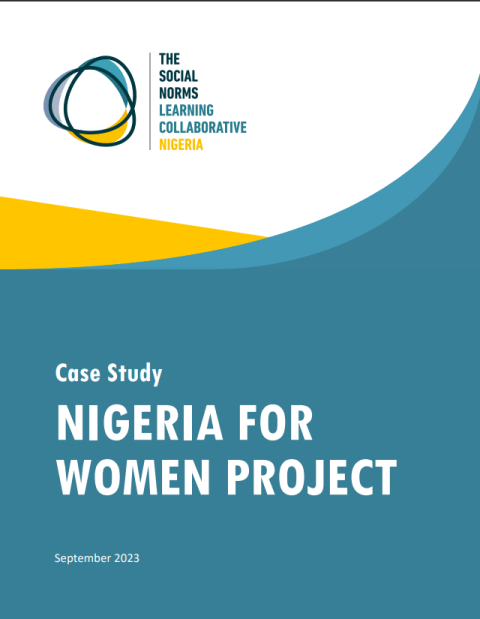- Case study
- 14 November 2022
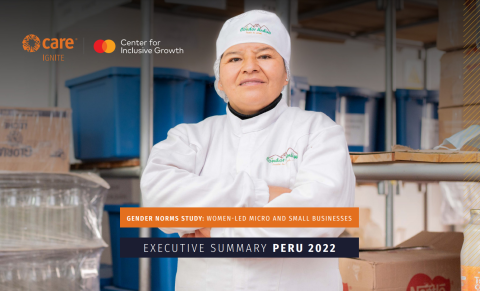
'Glorifying multi-tasking by women entrepreneurs has to stop', says CARE. This new research series reveals the stark truth: women across the globe are bound by gender norms which are stunting their business success.
This research by development organization CARE has revealed how ingrained gender norms are, who is enforcing them and how they are preventing women entrepreneurs from reaching their goals. Revealingly, it is not just men who are piling expectations on women – it is also women themselves and their female family members.
Even more alarmingly - the study found that when women entrepreneurs start to succeed, they can face sabotage by their male family members and even face violence or sexual harassment.
Gender norms are everywhere. The expectation that a woman should be the main childcare giver is a norm that is so ingrained it constantly remains unchallenged. Across the globe, a woman’s ability to multi-task is put on a pedestal and glorified by both men and women. A woman’s ability to run her own business, care for her children, run her household and do everything else in between is seen as a badge of honor.
This new research, conducted in Pakistan, Peru and Vietnam reveals that expectations about women being the main childcare giver and men being the main breadwinner are as strong as ever. CARE, through its Ignite program, which supports women entrepreneurs to grow their businesses through increased access to financial and digital resources, is taking action to shift some of these norms holding women back.
Key findings:
Norm: Women should be the main childcare giver:
- In Vietnam, 80% of men and 60% of women agreed that businesswomen should be the main childcare giver, despite the pressure of running a business.
- In Peru, 80% of women interviewed say they are bound by traditional gender roles and the expectations and pressures from the family and society as caregivers.
- In Pakistan, female respondents said childcare responsibilities are one of their biggest challenges.
Norm: Men should be the main breadwinner:
- In Pakistan, women are not accepted if they earn more than their husbands - 76% of respondents felt that people, particularly family members, will disapprove if female entrepreneurs’ earnings usurp their partners’.
- In Peru, 40% of women believe in the patriarchal system where men should be the head of the household.
- In Vietnam, 76.7% of those aged over 51 agree with this norm, however, only 36.7% of 26-50 year-olds agree, showing a more progressive response by the younger cohort.
In Vietnam, mothers-in-law were revealed as the staunch enforcers of the norm related to childcare, the ones who would most disapprove if the man does more childcare than the woman. This was followed closely by the woman entrepreneur herself. In Pakistan, for married women it is predominantly the husband’s mother and his sisters who load pressure onto women to be at home taking care of the children and the household, and for the man to be the main breadwinner. In Peru some women shared that gender inequality and stereotypes are also upheld by women themselves, often influenced by the religious belief that the man is the head of the household.
Harmful consequences of success:
The study also found unintended harmful consequences of a woman entrepreneur’s success. In Pakistan, women indicated that if they start earning more than their male family members, they are overburdened with household responsibilities to the point that they are forced to cut down on, or even discontinue, their business. Furthermore, women entrepreneurs who leave the house for business without a male family member are considered less moral and may be subject to harassment or sexual requests in return for work-related agreements. In Peru, 100% of the women entrepreneurs interviewed had either seen or heard about a case of violence in their close environment (with their mothers, friends, neighbors).
Solutions:
Through a combination of far-reaching social media campaigns and in-person workshops, CARE is beginning to see small changes. Media campaigns in all three countries, with male and female role models, have showcased shared responsibility in the home and normalized the growth and success of women entrepreneurs, with the campaigns generating a widespread appreciation for female entrepreneurs.
Nguyen Thi Thu, from Vietnam, who runs an organic farming network, as well as her own food business, attended a ‘Family Day’ organized by CARE, which promoted shared responsibility and more engagement in women’s success by husbands and children. She said:
I have struggled a lot with my husband’s lack of support. Now we are trying to find a new balance. Since we attended the Family Day together, I have seen a major change in him. On that day, for the first time, he acknowledged my work and my contribution to society and the community. Since then he is really helping out with the children and the household chores. He is cooking and cleaning, he’s very wonderful! Now I can travel much more for work.
In Peru, CARE will be using this gender norms data to develop a new element of the Ignite program focused on shared responsibility in the home targeting women entrepreneurs, their partners and family members. New training will also be offered to CARE’s local financial partners on gender and shared responsibility. CARE will also provide early support and signposting for women entrepreneurs who report gender-based violence. In Vietnam and Pakistan, the data will continue to be used to influence outreach activities and campaigns which promote and normalize shared responsibility and women’s financial and digital independence.
By studying the barriers that are holding women entrepreneurs back, and then working closely with local partners to break down those barriers, CARE is building new opportunities for women entrepreneurs wanting to grow their businesses. Despite the Ignite program launching in the midst of the pandemic, the program has unlocked 115 million USD in loan capital for women entrepreneurs, a twenty-two-fold uplift of the original program funding provided by the Mastercard Center for Inclusive Growth. 83% of Ignite participants tell us that the program has contributed to an increase in their business sales, helping to build their financial resilience.
Work on financial inclusion to date has been focused on products and services, without fully understanding and addressing what is preventing women from accessing or using them. Very few organizations working in this field are addressing the gender norms that hold women entrepreneurs back, as it requires longer-term commitment. Time poverty, for example, is a major issue interconnected with childcare and household duties. CARE’s experience shows that engagement at the household level, can result in a huge increase in shared household responsibilities and decision-making. This in turn gives women increased opportunities and time to focus on growing their own businesses and contributing to their local economies.
Rathi Mani-Kandt, Director of Women’s Entrepreneurship & Financial Inclusion at CARE USA said:
Glorifying multi-tasking by women entrepreneurs has to stop. By working together with women and their support networks we want everyone to recognize the importance of shared responsibility at home, and to value the enormous contribution women entrepreneurs are making to their families, communities and economies.
CARE is calling on other organizations working in financial inclusion to:
- Design holistic programing for women entrepreneurs that includes addressing restrictive gender norms.
- Promote the benefits of shared responsibility in the household and the economic contributions of women entrepreneurs.
- Collect data related to perceptions and expectations around gendered roles and how these present barrier for the growth of women-led enterprises.
- To advocate for policies that respond to the specific challenges that women entrepreneurs face.
Case studies are available from Viet Nam, Peru and Pakistan.
- Tags:
- Economic empowerment
Related resources
Report
26 March 2025
Published by: ALIGN, CIEDUR
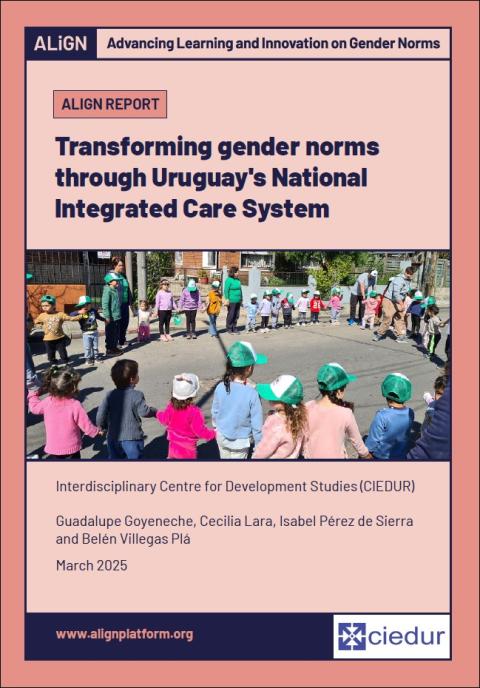
Report
20 March 2025
Published by: ALIGN, FAADEV
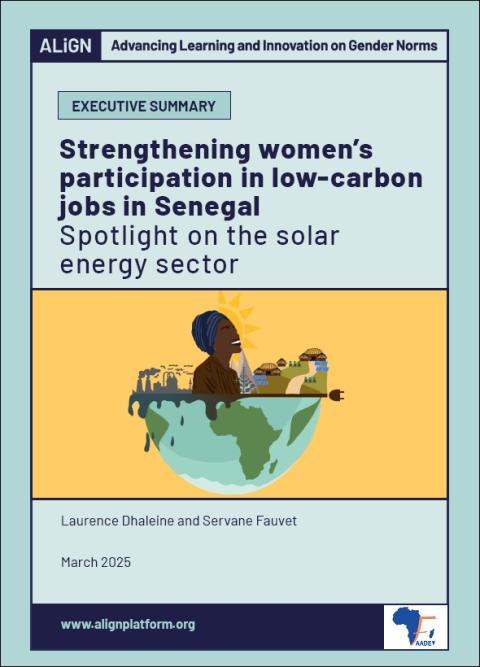
Report
20 March 2025
Published by: ALIGN, Restless Development
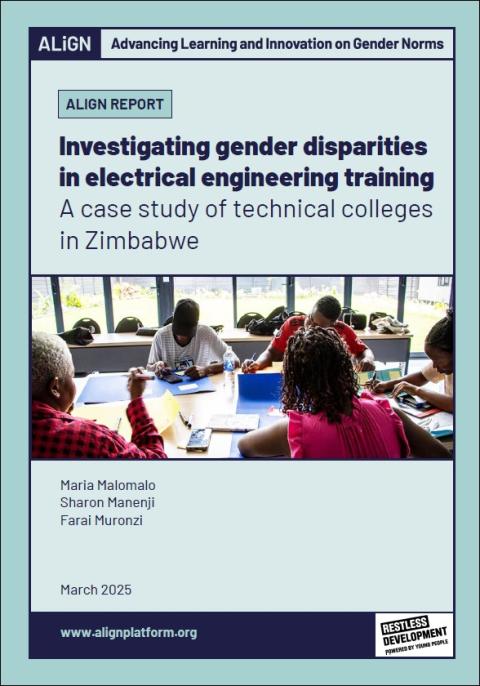
Blog
19 December 2024
Published by: ALIGN

Report
9 October 2024
Published by: Care
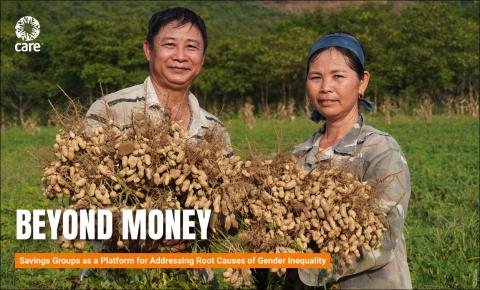
Report
17 June 2024
Published by: Deloitte Access Economics

Blog
3 April 2024
Published by: ALIGN
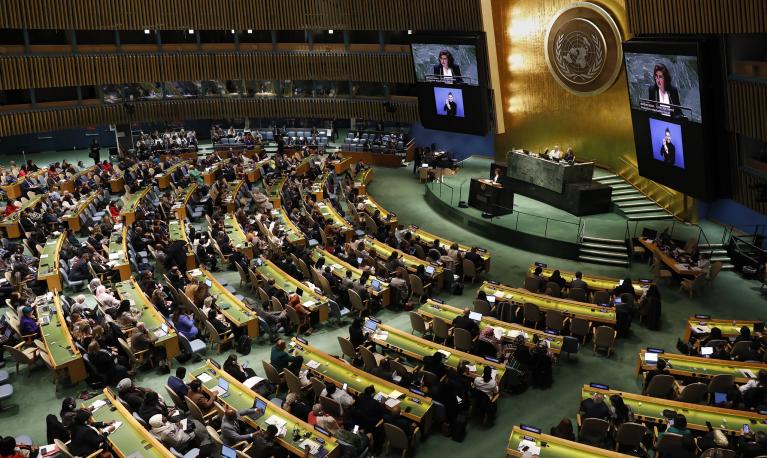
Report
15 January 2024
Published by: ALIGN

Blog
8 January 2024
Published by: ALIGN

Report
1 November 2023
Published by: Gender Equality Initiative
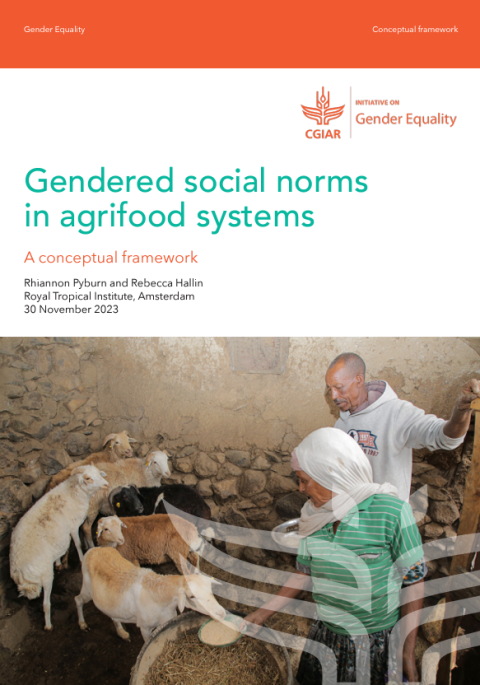
Briefing paper
26 October 2023
Published by: ODI
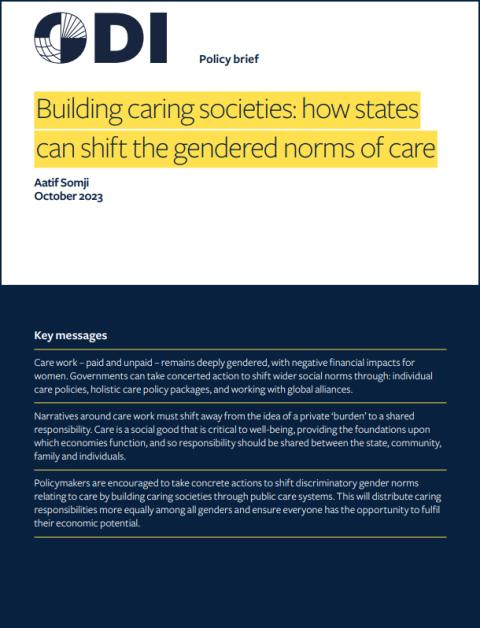
Case study
25 September 2023
Published by: Social Norms Learning Collaborative, Nigeria Learning Collaborative
